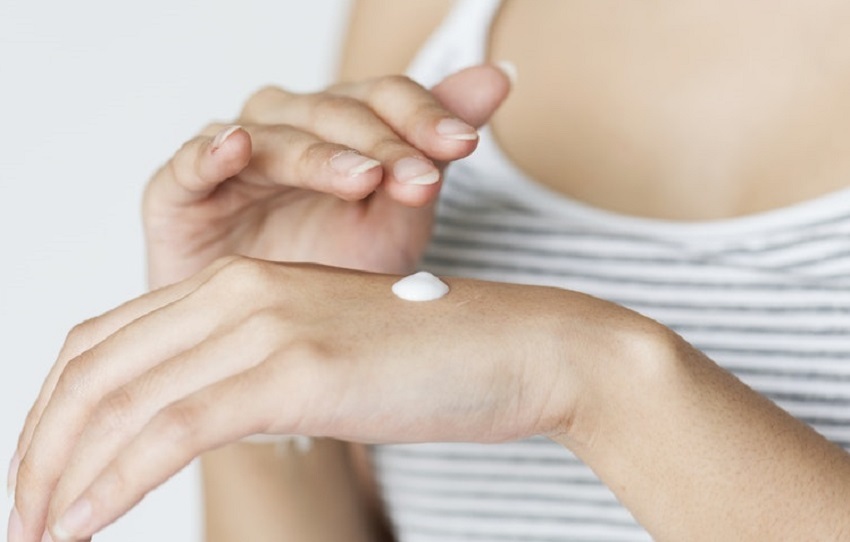Fetal Collagen

Is aborted baby tissue used in expensive face cream?
On 7th November 2009, it was reported in Bioedge that a San Francisco cosmetics company, Neocutis, has admitted that it used cells from an aborted male fetus as an ingredient in a beauty cream. The Swiss product is manufactured from patented processed skin proteins (PSP), and is used for conditions such as psoriasis and eczema, and, unsurprisingly, ageing. The proteins were obtained from a postage stamp-sized rectangle of skin taken from a terminated 14-week old male fetus in Switzerland.

Anti-abortion groups were particularly scandalized by the company’s brazenness in defending the use of aborted tissue in beauty creams. Neocutis contends that harvesting the skin cells was responsible and ethical. “The small skin donation” taken to develop this cosmetic treatment “originated from a single terminated pregnancy that could not survive to term and that was deemed medically necessary by the attending physicians.” The company compared this use of foetal tissue to the 1954 Nobel Prize, which was awarded to “researchers who utilized fetal kidney cells to develop the polio vaccine.”
The PSP is used in Neocutis bio-restorative skin cream, Journée bio-restorative day cream, Lumière bio-restorative eye cream and Bio-gel bio-restorative hydrogel. The Neocutis website says that “Through years of research, physicians [have] discovered fetal skin has a unique ability to heal wounds without scarring.”
The moral status of fetal material is widely disputed. For some, as an entry in the American Journal of Bioethics Blog suggests,
fetal proteins in a face cream aren't any different from animal or plant protein because for them the moral status of the aborted fetus doesn't have the moral status to give one concern if consent to both abortion and research took place.
Other allegations
From time to time, the allegation surfaces that abortion clinics are selling foetal bodies to major cosmetic companies so that they may be "rendered" for their collagen. This rumor is persistent and seems to have a life of its own.
In April of 1980, guards at the Swiss-French border intercepted a Central European truck loaded with hundreds of pounds of frozen aborted preborn babies which, according to the accompanying bills of lading, were destined for several French cosmetics factories for processing into expensive cosmetics. Gazette du Palais (French Legal Journal)
The French newspaper explained that such trafficking in foetal remains is brisk, because they are used in "... beauty products used in rejuvenating the skin, sold in France at high prices.
"One seller, Madame Renne Ibry, advertises that her beauty products - which include fetal collagen - are "absolutely natural." Claude Jacquinot.Gazette du Palais, Numbers 98 and 99; Wednesday, April 8th, 1981, and Thursday, April 9th, 1981.The actual brochure boasts about how the use of foetal collagen can "rejuvenate" skin and is translated from the French as shown below. This below is the text of advertisement circulated by a French company using aborted babies in cosmetics. It includes a description of what the cosmetic can do:
Tarif [price list] AU 1ER Avril 1980 Californie esthetique [California Beauty], Registre des Metiers, 697210 169 RM 06, Registre de Commerce 72 A 16
Centre Henri Chenot Madame RENEE IBRY, 85 avenue Marechal-Juin, 06400 CANNES Tel.43.85.54
Beauty by Cold
This revolutionary treatment of cellular regeneration uses cold technology. Because of the labors of Dr. Alexis Carrel, we know that young cells applied to old tissues are able to regenerate them. These cells are all the more effective if they are living. This technique consists of 'splintering' or 'chipping' fresh cells, the DNA and RNA life carriers. Taken exclusively from human foetuses, these cells, no longer independent, do not carry antibodies under any circumstances. This reduces to a minimum any risk of allergic reaction.
- Absolutely natural, this product is made for use at home
- Red stick: placenta of the foetus and foetal spleen, liver, and thymus
- White stick: liquid polyvalent [drawn from intestinal membranes]. In the box: red or white bottles